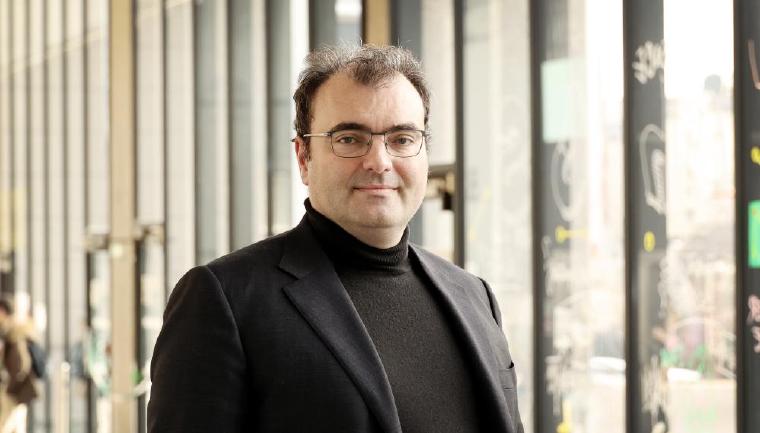Every month we present to you a new profile, a portrait of an engaged individual in EUTOPIA. Today, meet the Deputy Vice-Chancellor for Research at the University of Gothenburg, Carina Mallard.
You can watch the interview here, or you can read it below!
Who are you? Where do you work? And what is your background?
Carina: I am Carina Mallard, from Gothenburg University. I am a professor in neuroscience, I finished my PhD in 1995. I did that PhD in New Zealand where I worked on brain injuries in the newborn, then I continued in Australia for a postdoc, and then returned back to Sweden in 1999, where I still am to this day, at the University of Gothenburg.
Did you study in Gothenburg at all?
Carina: No I actually did my undergraduate studies in Lunds University, which is the very south of Sweden. And then I went abroad for my PhD in New Zealand, then my postdoc in Melbourne University in Australia.
I was very lucky to get an associate professorship from the Swedish Research Council actually. And that’s what brought me back to Sweden to set up my own career there.
What are your current responsibilities and concerns at your university?
Carina: I am the Deputy Vice-Chancellor of Research at the university at the moment. So that includes working with research boards for the university with all the different faculties; we also have special councils for ethics, and another one for PhD studies; we’re trying to combine these different aspects of research in these different either boards, or councils, which include all the faculties.
I think it’s always a collaboration. Gothenburg University is a very broad university, we have several faculties and they stem from medicine, to humanities to arts. And I think sometimes to get these different aspects of research to work together is a challenge, but also very very much fun of course, and interesting.
Do you manage to continue doing research during your tenure as a vice chancellor?
Carina: I have 20% research in my position. Maybe I don’t spend quite so much time on research, but I have a very good team in my lab, so I’m very lucky to be able to use them for that.
So you’re still attached to your lab?
Carina: Absolutely yes, we are very busy writing papers, applying for money all the time…
How did you arrive to EUTOPIA?
Carina: I’ve only been in my position for a year, so EUTOPIA was already sort of settled, already there when I started. So I took over the leadership of TRAIN when I started, which is the research part, or project within the EUTOPIA pilot project. And that’s how I’ve started to connect with all the other parts of EUTOPIA.
What do you expect for the future of R&I in EUTOPIA?
Carina: Our idea is that we think it’s important that we form the very best basis and platform for the researchers to work. And they can choose in what subjects they want to study or research on. But I think the important thing is that we give them the right conditions to excel in the fields that they choose to work in, basically, and I think that can be done across sectors, across universities, and I think we can gain from communicating with each other, and then take this one step further.
I already know that our communities that have met through EUTOPIA would probably not have worked together otherwise… It’s a long-term project. I think we have to give it time, everyone has to start to learn about each other before they can, obviously, trust each other enough to start a research project, but I think in the long run it will lead to further collaborations.
And of course, the innovation side is going to be, hopefully, the end point of, the next step of the research.
What is EUTOPIA doing for innovation and knowledge transfer at the European level?
Carina: Well first of all within TRAIN we have developed a Grant & Innovation Office, combined and established within the project, and that includes all the participating universities, so that’s obviously going to be important because then they can work together on different aspects of how to implement these things, both in the public but also in the industry. And then I think we have to try and work as much as we can with companies. That can of course be regional companies, but also that can be international companies, and I think we have a great potential there, particularly on the international side, if we start to develop strategies for approaching them, and working together to combine our research efforts. I think that’s definitely an output that we should be looking for.
And it’s important I think to work with the communications, or regulations, so that we understand each other enough to be able to share the information, because of course this information, on company patents and that sort of thing, needs to be very carefully regulated. And I think there we have to really think about how do we combine this within Europe, so that we think and speak the same language. We talk a lot about multilingual approaches, and I think this is a different language that we need to be able to speak.
Can Research & Innovation convey a local, or even a European identity?
Carina: My vision would be that we would be global, and that would the end goal I think, so… Having a European identity, that could be that we are setting certain standards for example, that we do things ethically, we have a sustainable basis for everything we do, that could be our European trademark if you like. But then of course, the global market is what we would aim for as an end point.

